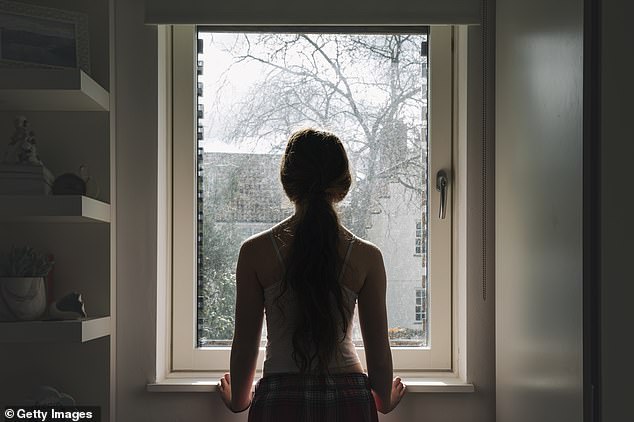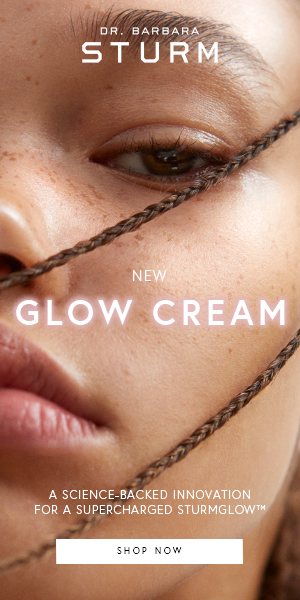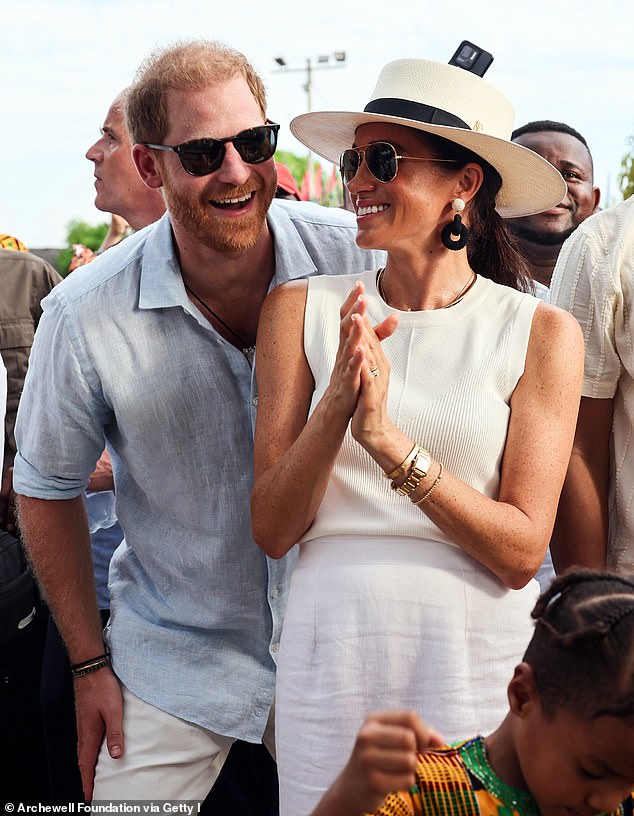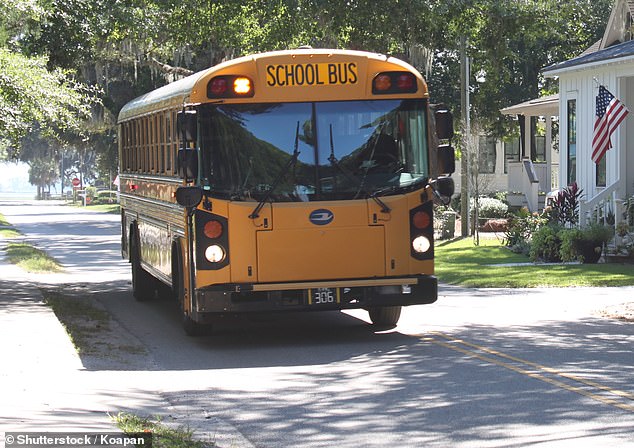Horrific images are seared indelibly into their minds; an abiding terror keeps them in a state of perpetual high alert. They have lost their trust, their innocence; the growing independence of their carefree childhoods.
One year on from the Southport stabbings – in which three young girls were murdered and ten others injured – one family has a singular story to tell; a tale of two daughters who were both at the studio for a Taylor Swift-themed dance workshop when the horror unfolded, as Axel Rudakubana, then 17, ran amok with a knife on his killing spree. Today it is the elder of the two children, at the time aged 13, who recalls just how close she came to death on that sunny summer’s day which began with such hope and happiness.
The older girl, who we are naming Sarah* – neither she nor her sister can be identified for legal reasons – was critically injured in the attack, her spine fractured and her lung punctured.
Pretty with delicate features, Sarah wears her blonde hair loose. Her make-up is minimal: lip-gloss, a smidgeon of blusher over clear skin; her nails colourfully manicured.
A baseball cap partly obscures her eyes as she talks quickly, in a voice barely above a whisper.
Speaking exclusively to this newspaper, it is clear she struggles to relive the trauma, although she does so with quiet articulacy and conviction.
She was the eldest child at the workshop, a talented ballet dancer who had volunteered to go with her little sister, whom we are calling Emily*, to take photos for the organisers’ social media pages.
‘My nightmare started when I saw you,’ Sarah says, reading to me from her witness impact statement which was directed, with laser-sharp focus, at the killer himself.

One family tells the Mail about the traumatic events that unfolded in Southport last year and how it continues to affect them
She tells me she wanted to speak as if directly to him because: ‘I want him to know exactly what I think of his sickening acts.’
She goes on: ‘I thought you were playing a joke. I saw you in your green hoodie and face mask. The thing I remember most about you is your eyes. You didn’t look human – you looked possessed.
‘I was so scared of what you were doing and I was in a blind panic. I ran out onto the landing and there was a group of girls huddled and I began just screaming for them to get down the stairs.
‘I watched you stab someone and then I saw you coming for me. It was like slow motion. You stabbed me in the arm and instinctively I turned and that’s when you continued to stab me in the back, although I didn’t feel it at the time.
‘All I could hear was the screams. I remember I was physically pushing them [the girls] down the stairs to get them out of the building and get away from you.
‘I knew I was running for my life. I needed to try to get everyone out and to safety – that was my first thought.’
Sarah is speaking to me with her parents, who are sitting at the kitchen table of their Merseyside home, a close family unit bonded by trauma. Emily, then nine, unhurt but still emotionally scarred, does not speak at all about the terror of it, and chooses not to sit with us. She has retreated behind a wall of silence. But Sarah remembers her little sister’s pleas as she drifted in and out of consciousness: ‘Please don’t die, please don’t die.’
It is hard to take in the scope and scale of their fear that day. Its legacy persists in flashbacks, occasional outbursts of anger, anxiety; a regression to the dependence of much younger children. ‘Our older daughter struggles,’ their mother Fiona*, 45, tells me, quietly. ‘Sarah only feels comfortable with certain people.

Alice da Silva Aguiar, 9, was one of three victims, along withBebe King, 6, andElsie Dot Stancombe, 7
‘She was just starting to go to school on the bus, on her own.
‘Now we take her and collect her in the car. We feel we’re micro-managing every part of our girls’ lives and it’s draining. Even I struggle with anxiety.’
‘We can’t do things on impulse any more,’ adds their dad Mike*, 41. ‘Sarah is in a constant state of hyper-vigilance. She has to have control. Even a simple visit to Costa Coffee has to be planned.
‘We’re like close protection officers, weighing up where the entrance and exit are. We’re conscious of every door, where we should sit.’
There are constant triggers: the image of Rudakubana and his name – they merely refer to him as ‘the perpetrator’ – spark fear. Sarah, now 14, has to leave the classroom at school if subjects such as hate crime, good versus evil, life after death or Islamophobia are raised.
Emily, now ten – whose friend Alice da Silva Aguiar, nine, was killed in the attack along with Bebe King, six, and Elsie Dot Stancombe, seven – has ‘just shut down’.
‘She will not talk to us about it,’ says Fiona. ‘She has had a troubled and different experience because she lost her friend. Since the attack she’s been bullied at school. Certain children have seen her vulnerability and picked on her verbally. It has made her more anxious.
‘She is struggling. She would never retaliate or do anything to disrupt or upset other people. She’s had to go to a new school. We had no choice because of her anxiety attacks over the bullying.’

Axel Rudakubana, who was 17 at the time of the attacks, was given a life sentence in January, with a minimum term of 52 years in jail
As a Channel 4 documentary, One Day In Southport, to be screened tonight, sets the family’s harrowing experience against the aftermath of nationwide riots and attacks on hotels housing asylum-seekers, Mike expresses his dismay that the deaths of three innocent children were eclipsed by such violence.
‘It was all down to misinformation on social media about the perpetrator and it overshadowed what happened in Southport, which was already traumatic,’ he says.
‘What I struggled with most was that we were all praising the emergency services for their response, then suddenly there were hooligans injuring them.
‘Southport did not need that. It was not fair on the bereaved families to be dealing with it.’
Sarah tells me her mind wanders back constantly to the day the killer ‘changed my life for ever’.
July 29 last year was ‘pretty much like any other summer day; sunny and warm’, she says, remembering how her dad drove her and her sister to the studio in Hart Street, in the Meols Cop area of Southport, where the Swift-themed dance, yoga and bracelet-making morning was taking place.
Twenty-six children aged between six and ten took part, with Sarah taking photos. It would be hard to envisage a more wholesome holiday gathering of excited little girls.
She remembers the clamour of thrilled anticipation as the participants assembled: ‘Everyone was excited. They were getting to know each other, making friends.
‘They split into two groups and went into two different rooms, then swapped halfway through. At the end, they all came together to make friendship bracelets.
‘That’s when I saw him come in with his hood up and a face mask on. As I said in my victim impact statement, I thought it was a joke to start with – until he stabbed a girl in front of me multiple times.
‘Then I realised it was a life or death situation. Everyone was screaming. I was terrified.
‘Then he came for me. I saw the knife go into my arm. I turned and he must have stabbed me in the back but I didn’t feel it at the time. I just thought: “I must get out.”
‘Some of the girls were huddling round the stairs like they didn’t know what to do.
‘I yelled at them to get out and I was shouting Emily’s name. I didn’t see Emily’s friend Alice at all in the madness. I regret every day that I couldn’t help her.’ She cries.
‘My vision was blurry; I was seeing stars but I didn’t feel any pain then. I ran outside and across the road to a house where a man was building a garden wall. I said, “I’ve been stabbed. I think I’m dying.”
‘He said, “No, you’re not dying.”
‘I had a flesh wound on my arm but no one knew at that stage I’d also been stabbed in my back and the knife had punctured my lung and fractured my spine. I know now that I could have died.’
It is probable that the adrenalin coursing through her as she fled the horrific scene masked any pain.
‘Some other girls were with me and he said we should go into the house. I collapsed on the floor then lay on the couch. A woman came in with water and a phone and said we should call our parents.
‘I was struggling to breathe and then I saw my sister there and she was crying: “Please don’t die. Please don’t die.” She’d been with me all the time but I didn’t realise because my sight was so blurred.’
Mike takes up the story, remembering that he had no idea of the horror that was unfolding until he reached the studio to pick up his daughters at midday, minutes after the attack had begun.
‘I saw an ambulance coming down the road and thought, “Something’s going on.” As I got closer it was like a scene from a horror film; screaming and utter chaos.
‘I heard parents on their phones saying people were being stabbed. I turned a corner and saw kids with blood on them and a rapid responder giving first aid. My first thought was, “I need to find my girls.” I called my wife and said: “Get here now. Children are being stabbed.”
‘Then I saw a guy walking to the car park carrying a child in his arms and my heart just sank. I ran into the building to find my girls, not knowing what to expect, just as the police were arresting the perpetrator on the landing.
‘I saw scenes I wouldn’t wish on my worst enemy. I couldn’t see my girls and the police were shooing us out. Then my phone rang. An unknown number. It was Sarah. She told me they were in a house just across the road, in Hart Street.
‘I just ran, then barged in shouting my girls’ names.
‘Then I saw Emily and she said Sarah had been stabbed. She said, “I don’t want her to die.” Then Sarah stumbled out, looking pale. She said she’d been stabbed in her arm. She did not realise she’d been stabbed in the back at that point. There was blood on her hoodie but we assumed it had come from her arm wound.
‘By then the medical staff were arriving and I got her to the paramedics. It was stiflingly hot and she was wobbly on her feet.
‘She sat on the pavement and they put compression bandages on her arm.
‘Emily wasn’t hurt. By then my wife had arrived with a neighbour and we asked her to drop Emily off at her grandparents where she’d be safe.’
Still convinced that Sarah only had superficial wounds to her arm, Fiona decided to accompany Alice’s mum Alex to hospital where, heartbreakingly, the little girl died the next day.
‘I was worried that Alex was on her own. My husband said, “Go and support her,” so I left him with Sarah,’ she recalls.
It was then that Sarah’s condition deteriorated. ‘She became drowsier and paler.
‘The armed response team took off her hoodie and found wounds to her back. She was upgraded from walking wounded to emergency and put on a stretcher with a drip,’ recalls Mike.
Then everything started to spiral out of control. He was instructed to follow in his car while the ambulance blue-lighted her to Alder Hey Children’s Hospital, Liverpool, but, unbeknown to him, it was diverted en-route to Aintree University Hospital five miles away.
Chaos ensued as he couldn’t find her at Alder Hey; neither could he summon his wife who had, in the commotion, left her phone at the house where they had all assembled. Finally, he arrived at Aintree to face stark news: ‘An A&E consultant asked to see me in a side room. My heart sank. I feared the worst.
‘He said, “Because you weren’t here we had to operate in the patient’s best interests.”
‘Sarah had two blood transfusions and an operation to drain blood from the cavity between her lungs and ribcage.’
The condition, known as a hemothorax, can be fatal if not promptly treated: ‘But I didn’t realise the severity of it. I didn’t know that it could have gone either way. I just remember saying, “Is she all right? Please, just take me to her.”
Fiona, meanwhile, was driven in a police car to Aintree: ‘I wasn’t thinking straight. I was just rambling incoherently.
‘When I got there the staff were so kind and nurturing. They told me Sarah had had a hemothorax and I was in shock.
‘I thought: “Oh my God, what a bad mother I am.” I just felt awful that I hadn’t known how seriously she’d been hurt, that I hadn’t been there. I just couldn’t wait to see her and when I did I realised the enormity of it. She had a chest drain and morphine by a syringe drive.
‘I feared the worst. I’d known people who’d died from the same thing.’
They were reassured, however, when their daughter, ‘who has a wicked sense of humour and loves a joke and a wind-up’, greeted them.
‘The first thing she said to me was, “Oi, where have you been?” laughs her dad. ‘Then she said, “I’ll definitely get my Shein basket now.” She had placed an order with the clothes company and was hoping we’d pay for it. It was just such a huge relief to see her being her usual cheeky self.’
‘And soon she was asking for a McDonald’s.’ Fiona breaks into a smile at the memory.
Sarah spent a week in hospital. Back home, psychotherapy – which, a year on, still continues – has become a part of both girls’ lives.
But they have also mined something positive from the tragedy. They have set up a foundation to support ‘charities we believe in’ – mental health, recovery from trauma, anti-knife crime among them – through their own clothing brand, GABA. ‘It’s a double meaning. It’s both a neurotransmitter sending relaxing messages to the brain and it also stands for Go Anywhere, Be Anything, which we want everyone to be able to do,’ Sarah explains.
‘It gives me a focus outside all the negativity. Helping others will help me move forward.’
Sarah shows me a striking T-shirt from the range that she designed with Emily, featuring a monkey ‘because Mum and Dad say we’re a couple of cheeky monkeys’.
They are campaigning, too, for first aid training to become part of the school curriculum and hoping that, by learning to treat knife wounds, pupils will be educated not to carry blades.
I ask if she believes Rudakubana, who was sentenced to life with a minimum term of 52 years in January, deserved a death sentence. ‘I don’t think it would have been appropriate,’ she says. ‘But he should spend the rest of his life thinking about what he has done – in prison.
‘And I would like to know the reason for what he did. Arming himself with a weapon and stabbing children. It was sickening.’
Sarah is thoughtful. The enormity of the tragedy has given her a wisdom beyond her years.
‘And I hope he spends the rest of his life knowing what a coward we think he is,’ she adds.
One Day In Southport is on Channel 4 at 9pm tonight.
* The names of Sarah, Emily, Fiona and Mike have been changed.







